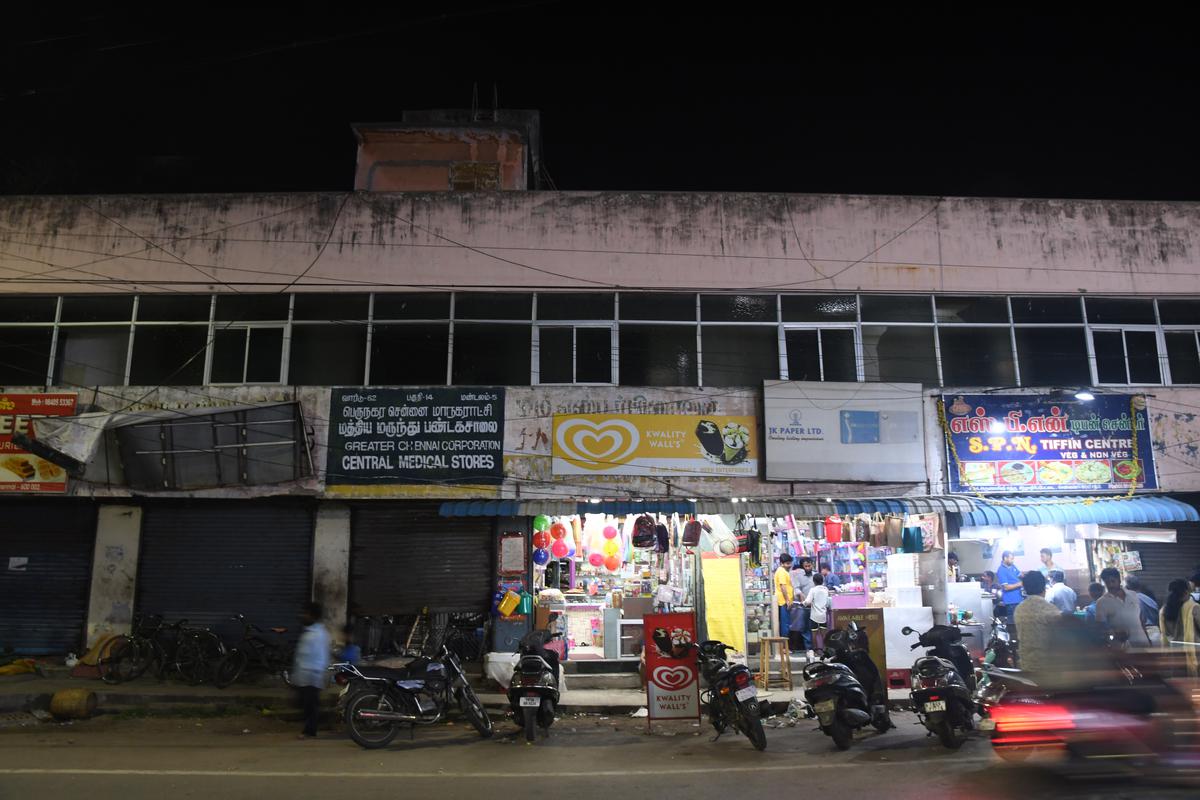
Commercial complexes owned by Chennai Corporation in a state of disrepair
The Hindu
Most of the complexes lack amenities like toilets, are in dilapidated condition and have been vacant for long
The Greater Chennai Corporation owns 136 commercial complexes across the city that house nearly 5,000 shops. However, the revenue potential of these complexes has not been realised because of poor sanitation, lack of cleanliness and inadequate security. High rent and the pandemic forced many shopkeepers to abandon their premises leaving large amount of arrears in rent.
The Hindu explores the situation on the field.
The Lily Pond Complex behind Ripon Building gives the illusion of a thriving business complex when in reality, many shops are shut and shopkeepers are struggling to sell their ware. The complex on C.P. Ramaswamy Road fares slightly better; all the ground floor shops are occupied, mostly by boutiques, but the first and second floors are almost entirely empty, except for the Mylapore Times office. The shops along its dusty corridors are filled with broken windows and doors, peeling paint and sometimes the nocturnal visitor. The staircase is strewn with empty alcohol bottles, reminiscent of the previous night’s revelry. With three unmonitored entrances, anyone can walk in and out.
On October 12, the Corporation conducted a mega auction for the 117 shops across its complexes but new owners will be forced to invest their personal money and work in poor sanitary conditions.
So why do some shopkeepers remain? “Comfort mostly. We’ve been here for too long and shifting would be like starting all over again”, says Mageshkumar, secretary, Lily Pond Complex Association.
Sumanth V., who runs a battery shop on C.P. Ramaswamy Road, agrees with him, but says he has faced a few difficulties. “I had to install an additional grill door to prevent the public from drinking and smoking on my doorstep”. According to him, the rent was ₹3,500 four years ago and now he pays ₹23,000. “If they had increased the rent gradually, we wouldn’t have felt the pinch,” he says.













